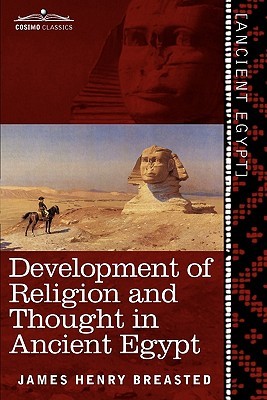
- We will send in 10–14 business days.
- Author: James Henry Breasted
- Publisher: Cosimo Classics
- Year: 2010
- Pages: 404
- ISBN-10: 1616404922
- ISBN-13: 9781616404925
- Format: 15.2 x 22.9 x 2.3 cm, minkšti viršeliai
- Language: English
- SAVE -10% with code: EXTRA
Development of Religion and Thought in Ancient Egypt (e-book) (used book) | bookbook.eu
Reviews
Description
Development of Religion and Thought in Ancient Egypt traces Ancient Egyptian religion and thought from the beginning of the dynasties with Menes at about 3400 B.C. through the Roman conquest of Egypt in 30 B.C. Author James Breasted uses ancient texts, such as The Book of the Dead and the Pyramid texts, to trace the history of Egyptian religion, as well as the effects of other cultures on the Egyptians. The chapters, or lectures, are separated into both periods religious thought and by century. This literary and historical analysis is essential for any Egyptology student or enthusiast. JAMES HENRY BREASTED (1865-1935) was an American historian and archaeologist, as well as the first American to receive a Ph.D. in Egyptology. Breasted studied at North-Central College, Chicago Theological Seminary, Yale University, and the University of Berlin. Breasted is most well-known for his coinage of the term "fertile crescent" to describe the region in western Asia that is considered the cradle of civilization. He was also a teacher at the University of Chicago, served as the Director of the Haskell Oriental Museum, helped found the Oriental Institute, boosted the collections of several museums, and wrote several books on ancient Near East civilizations.
EXTRA 10 % discount with code: EXTRA
The promotion ends in 21d.21:25:21
The discount code is valid when purchasing from 10 €. Discounts do not stack.
- Author: James Henry Breasted
- Publisher: Cosimo Classics
- Year: 2010
- Pages: 404
- ISBN-10: 1616404922
- ISBN-13: 9781616404925
- Format: 15.2 x 22.9 x 2.3 cm, minkšti viršeliai
- Language: English English
Development of Religion and Thought in Ancient Egypt traces Ancient Egyptian religion and thought from the beginning of the dynasties with Menes at about 3400 B.C. through the Roman conquest of Egypt in 30 B.C. Author James Breasted uses ancient texts, such as The Book of the Dead and the Pyramid texts, to trace the history of Egyptian religion, as well as the effects of other cultures on the Egyptians. The chapters, or lectures, are separated into both periods religious thought and by century. This literary and historical analysis is essential for any Egyptology student or enthusiast. JAMES HENRY BREASTED (1865-1935) was an American historian and archaeologist, as well as the first American to receive a Ph.D. in Egyptology. Breasted studied at North-Central College, Chicago Theological Seminary, Yale University, and the University of Berlin. Breasted is most well-known for his coinage of the term "fertile crescent" to describe the region in western Asia that is considered the cradle of civilization. He was also a teacher at the University of Chicago, served as the Director of the Haskell Oriental Museum, helped found the Oriental Institute, boosted the collections of several museums, and wrote several books on ancient Near East civilizations.


Reviews